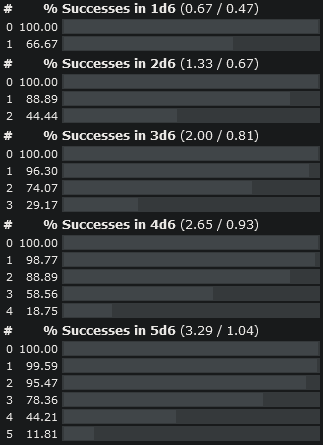I've been searching around but haven't yet found how to get this average out of AnyDice.
Players roll a pool of d6s. Normally, a success is counted on a 4, 5, or 6. However, there's a condition a player may have where a certain number of 3s also count as successes.
How can I get this into AnyDice? For example, what is the expected number of successes if I roll 3d6, but I can count up to two 3s as successes?
In other words: Total successes = 4s + 5s + 6s + (3s, but a limit of two)

